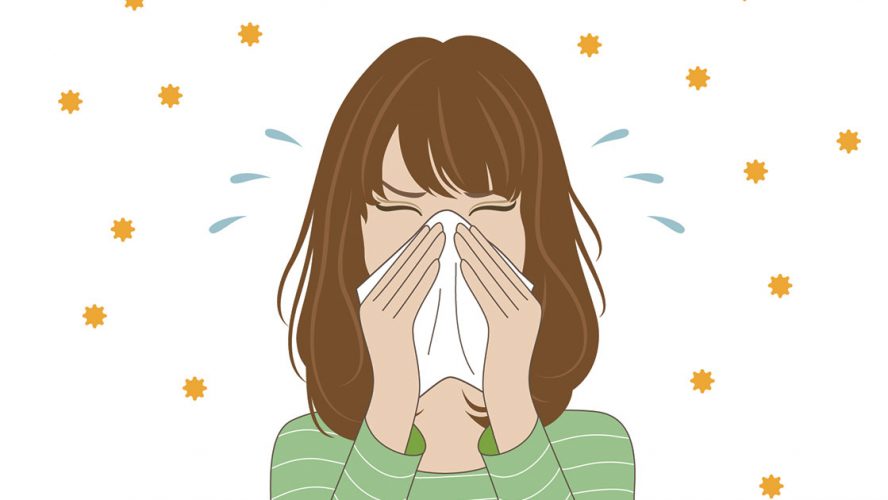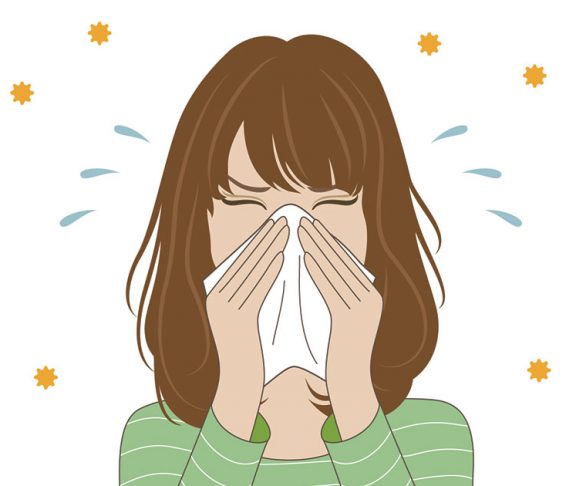Allergies and asthma are a household topic across the country. Listen up as two experts dive into the most important things to remember when managing allergies.

Bradley Chipps, M.D.
President-elec, American College of Allergy, Asthma and Immunology
Why is consistent management of allergies key for keeping symptoms under control?
Allergies can be both seasonal or year-round and that determines how often treatment needs to occur. There are three ways to manage symptoms: avoidance of allergens, medication and immunotherapy consisting of allergy shots and tablets. People who see an allergist for their allergies and asthma receive consistent and expert care for managing symptoms.
What is the best way to tackle allergies before they strike?
Thinking ahead to when your allergy symptoms start can save you a lot of suffering down the road. Many people who suffer from seasonal allergies aren’t aware they need to start taking their medications about two weeks before their symptoms normally start, and then continue to take them throughout the season.
Many people in search of “natural” allergy treatments don’t realize that immunotherapy — allergy shots and tablets — are the most natural treatment of all. Immunotherapy involves giving gradually increasing doses of the substances to which you’re allergic.
How can one keep an allergy-friendly home environment?
When battling allergens there are several things to keep in mind. Keep windows and doors shut at home and in your car during allergy season. Use air conditioning in your car. When running the HVAC at home, use clean filters.
Try to avoid pollen, know which pollens affect you and check pollen counts. Remember to take a shower, wash your hair and change your clothes after you’ve been working or playing outdoors. You can also wear a NIOSH-rated 95 filter mask when mowing the lawn or doing other chores outdoors, and take appropriate medication beforehand.
Many people suffer from mold allergy, and bathrooms, basements and areas that are tiled can be especially prone to mold. The key to reducing mold is moisture control. Use bathroom fans and clean up any standing water immediately. Scrub any visible mold from surfaces with detergent and water, and completely dry those surfaces.
What is the biggest misconception with asthma?
Some people think their asthma is cured if their symptoms are under control. Unfortunately, there is no cure for asthma. But asthma patients under the care of an allergist have better outcomes because they have better control of symptoms, fewer emergency visits, fewer hospitalizations and fewer missed days from work or school. Anyone with asthma needs to take their medication regularly to control symptoms.
What is one key takeaway you want to leave for allergy sufferers?
Allergists are trained to identify allergies and provide a personal treatment plan. They deliver information about the specifics of your disease. After diagnosis, allergists teach patients the best way to avoid exposure to potential allergy triggers and select the most effective treatments to allow them to lead a normal, healthy life.

Tonya Winders
President and CEO, Allergy and Asthma Network
Why is consistent management of allergies key for keeping symptoms under control?
When you are taking your medications as prescribed, reducing your exposure to allergens and irritants that can trigger symptoms, and working on a comprehensive plan to manage asthma and allergies, you are not only reducing the chances of a flare-up but also improving your quality of life.
It’s important to evaluate and address lifestyle factors that can worsen your condition as well, such as poor diet, stress, lack of sleep, weight gain and gastroesophageal reflux disease.
Patients should also make sure they adhere to their healthcare provider’s prescribed treatment, even when they are feeling well, and continue to ensure they are using correct technique regarding their medications, whether it’s an asthma inhaler or a nasal spray.
What is the best way to tackle allergies before they strike?
When you suspect you have allergies, the first step is to see a board-certified allergist to identify your allergens. The allergist will take a detailed medical and family history, discuss your symptoms and recommend an allergy test to confirm a diagnosis.
Once you know your allergens, you can find ways to avoid them — and avoid struggling with allergies. If you’re allergic to pollen, find out which pollen causes you the most difficulty. Limit your time outside and keep windows closed when pollen counts are high. Time your outdoor activities to avoid allergens, and change your clothes when returning from being outdoors. Take a shower to remove pollen.
When it’s impossible to avoid your allergens, plenty of medication options are available. Talk with your allergist about which is best for you. Note that while some medications can relieve symptoms quickly, many work best when they are taken before your allergy season begins. That’s because their long-term effectiveness builds up slowly.
How can one keep an allergy-friendly home environment?
Keep the filters on your home’s ventilation system clean, and keep windows closed when pollen and mold levels are high. Monitor the humidity level of your home and keep it at 30 to 50 percent; use a dehumidifier to avoid the growth of mold and other allergens.
Consider hardwood floors. Removing carpets, drapes, upholstered furniture and horizontal blinds will eliminate dust mite homes and minimize dusty areas that collect allergens. Cover mattresses and pillows with allergen-proof encasings to prevent dust mites.
If you are allergic to certain pets, don’t bring one into the home. If you already have a pet, limit them to one area of your home, and especially do not allow them into the bedroom where you sleep.
What is the biggest misconception with asthma?
I think the biggest misconception is that people believe they only need to take allergy medication when they experience significant symptoms, such as runny nose, congestion or red, watery eyes. Many antihistamine and nasal corticosteroid medications work best when taken daily, beginning a week or so before their specific allergy season begins.
What is one key takeaway you want to leave for allergy sufferers?
Talk with your doctor about allergy immunotherapy. It can help build your tolerance to allergens by introducing gradually increasing amounts of an allergen into a patient’s immune system until a maintenance level is reached.
For many, tolerance continues even after immunotherapy ends. It has proven to reduce or eliminate allergy symptoms from pollen, mold, pet dander, dust mites and stinging insects.

